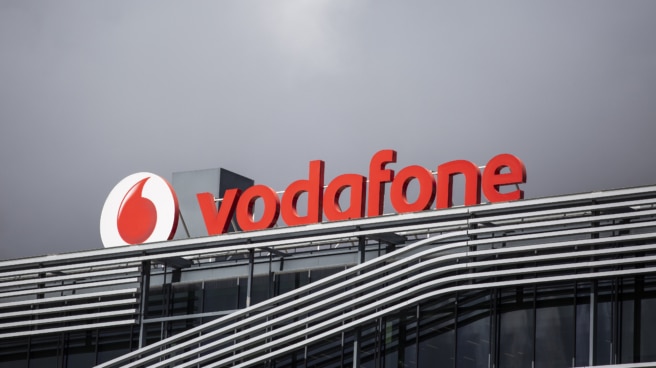

Vodafone headquarters in Madrid (Spain)
Zegona completes its entry into the Vodafone market in Spain. In the coming days, it is more than possible that both the investment fund and the British operator will announce an agreement that would involve the acquisition of 50% of the company for approximately 5.1 billion euros.
As the Extension This Monday, Zegona contacted Deutsche Bank, ING and UniCredit with a request to finance the operation. Sources consulted by the newspaper explain that the operation was delayed precisely because of the lack of liquidity of the investment fund and the guarantees required by both Vodafone and the creditor bank to implement the agreement.
In fact, the telecom sector was very skeptical about the possible acquisition due to the structure of Zegona itself. The company has virtually no assets and only with cash flow of 5.9 billion euros. That is, the purchase of Vodafone Spain will mean the liquidation of almost all of its assets. Therefore, the fund held intensive meetings with the bank to regain its foothold in the market. telecommunications in Spain.
Already in 2015, Zegona broke into the business with a similar operation when it paid 650 million euros for Telecable with the help of Liberbank and Carlyle and an interim capital increase. Two years later, Euskaltel bought Telecable and Zegona received up to 21% until it was sold permanently.
On September 22, Zegona’s investment manager confirmed that it was in talks with Vodafone to purchase “potential acquisition” your business in Spain. It is worth recalling that the operator’s parent company has already reconsidered the position of its subsidiary in Spain. “We will become a more flexible and simpler organization to increase our commercial agility and free up resources,” the company explained during the presentation of the results.
With everything set for the investment fund to take over Vodafone Spain, Zegona has a clear and defined plan for the coming quarters. The subsidiary in our country had a turnover of 3.907 million euros in the last financial year ending March 31, which is 6.5% less than last year. 4.180 million euros arrived in the same period last year. The truth is that the numbers are gradually improving and the losses are decreasing, as are the bills.
Management has high hopes for its commercial department, which operator sources say has received more resources for further growth in this area. It is worth highlighting, for example, the strengthening of the corporate business, where Vodafone offers better performance than other competitors. However, the British multinational’s accounts have long been unbalanced, and Zegona’s entry into the stake will be the impetus for a new adjustment in the composition of the workforce in the Spanish branch, informed sources tell the newspaper.
As these informants explain, Zegona will raise the issue of staff reduction with the company’s management. Vodafone currently employs more than 4,000 people. It is worth remembering that in recent years the company has applied several regulatory documents, which led to the loss of up to 3500 workers. Thus, these layoffs will be a bullet for the unions, which have been very tough due to the policies of the union leadership. telecommunications company British. It is also worth mentioning that the Vodafone group has announced a restructuring of 11,000 people in all the countries in which it does business. However, the possibility of creating a new ERE in Spain will not be linked to this, since the layoffs will affect employees with a relationship with the parent company.
Sale of assets
As the sources contacted explained, these are not the only open options. Another possibility is a partial or complete sale of assets. Vodafone has been trying to attract a partner to its fixed-line network for some time now. However, telecoms sector sources stress that the sale is difficult because “most of the fixed network (about two-thirds) is cable, which does not provide much value to investors,” they say. For several months now Telefonica and telecommunications company The British are in contact to move their fixed broadband customers to the company’s network run by Alvarez-Pallete.
A few months ago, the operator decided to move into just one of its headquarters buildings to save money. Thus, all employees of the subsidiary of the British operator are grouped in two of the five buildings at its location on the outskirts of Madrid. A few months ago, Vodafone entered into an agreement with the owner of its main headquarters to be able to rent out the empty premises once the transfer of workers to the two aforementioned buildings was completed.
Source: El Independiente